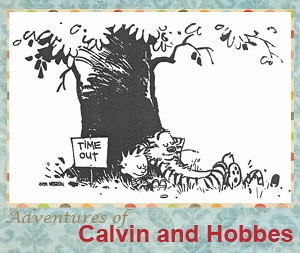Years ago, while I was finishing my pre-med studies, I developed an acute pain in my abdomen. I reported to the student health center, where they scheduled me for an immediate appendectomy. Hours later, I awoke in severe pain, alone, and worried. Then something quite ordinary happened. A nurse appeared, held my hand, and simply said, "Don't worry, Larry. Everything is going to be just fine." As she stood there, the pain vanished, along with my anxiety. Fear gave way to optimism that I'd make a quick recovery -- and I did.
There's no way around it: Whether it bubbles up naturally or is coaxed into materializing by another's thoughtful gesture, our outlook on life shapes our well-being. Optimism means having faith that things will turn out well in a given situation -- and often, they do. But even when they don't, a positive disposition leads us to find the gifts that are hidden in any difficult challenge. By viewing the glass half-full instead of half-empty, as the cliche goes, we reap tangible rewards: Studies have shown that joyful types are more likely to lead longer, healthier lives than those who expect the worst.
In making an effort to cultivate optimism, we are "optimized," or made capable of being and functioning at our best. It doesn't matter whether you came into this world with a sunny outlook. You can foster upbeat thinking by shining the light on the positive at every turn. Practice optimism using the following steps -- and enjoy the happy consequences.
Focus on the Big Picture
We're blessed. We live in a modern democracy with the attendant rights and privileges. Most of us are well fed, clothed, sheltered, and protected. Our daily luxuries -- clean water, air-conditioning, indoor plumbing, safe food -- have become so commonplace that we cease to notice them. In the name of optimism, we should wake up to our abundance. Doing so will help gratitude arise as a natural response to being alive at our place in human history.
Connect
Pessimists often make unpleasant company, and solitude leads to more pessimism. When you purposefully interact with others, you break the cycle of gloom and create an opening for optimism to take root. But choose your friends carefully -- feelings are contagious. Want to be depressed? Hang out with depressives. Want to be happy? Make friends with happy people. Since both pessimism and optimism are catching, you're more likely to feel optimistic if you surround yourself with optimists.
Immerse Yourself in Nature
The incredible complexity of living systems and the upward, evolutionary trajectory of life can stir optimism in anyone. I speak from experience when I say that spending time in nature can restore your soul, lift your spirits, make your heart sing, and keep you going in times of trouble. Take a wilderness retreat the next time you want to feel buoyant, recharged, upbeat, and ready to meet big challenges.
Cultivate Spirituality
Countless studies show that people who follow a spiritual path -- it doesn't matter which one -- generally live longer and enjoy a lower incidence of most major diseases than people who don't. Which approach should you choose? Be open. Let it choose you. You might find spiritual connection in a particular religion, a form of meditation, or a physical discipline such as yoga or tai chi. Connecting with the divine might also come through something completely different, like tending an herb garden, singing in a choir, or surfing Saturday mornings at dawn. Trust the saying "When the student is ready, the teacher appears."
Text by Dr. Larry Dossey
There's no way around it: Whether it bubbles up naturally or is coaxed into materializing by another's thoughtful gesture, our outlook on life shapes our well-being. Optimism means having faith that things will turn out well in a given situation -- and often, they do. But even when they don't, a positive disposition leads us to find the gifts that are hidden in any difficult challenge. By viewing the glass half-full instead of half-empty, as the cliche goes, we reap tangible rewards: Studies have shown that joyful types are more likely to lead longer, healthier lives than those who expect the worst.
In making an effort to cultivate optimism, we are "optimized," or made capable of being and functioning at our best. It doesn't matter whether you came into this world with a sunny outlook. You can foster upbeat thinking by shining the light on the positive at every turn. Practice optimism using the following steps -- and enjoy the happy consequences.
Focus on the Big Picture
We're blessed. We live in a modern democracy with the attendant rights and privileges. Most of us are well fed, clothed, sheltered, and protected. Our daily luxuries -- clean water, air-conditioning, indoor plumbing, safe food -- have become so commonplace that we cease to notice them. In the name of optimism, we should wake up to our abundance. Doing so will help gratitude arise as a natural response to being alive at our place in human history.
Connect
Pessimists often make unpleasant company, and solitude leads to more pessimism. When you purposefully interact with others, you break the cycle of gloom and create an opening for optimism to take root. But choose your friends carefully -- feelings are contagious. Want to be depressed? Hang out with depressives. Want to be happy? Make friends with happy people. Since both pessimism and optimism are catching, you're more likely to feel optimistic if you surround yourself with optimists.
Immerse Yourself in Nature
The incredible complexity of living systems and the upward, evolutionary trajectory of life can stir optimism in anyone. I speak from experience when I say that spending time in nature can restore your soul, lift your spirits, make your heart sing, and keep you going in times of trouble. Take a wilderness retreat the next time you want to feel buoyant, recharged, upbeat, and ready to meet big challenges.
Cultivate Spirituality
Countless studies show that people who follow a spiritual path -- it doesn't matter which one -- generally live longer and enjoy a lower incidence of most major diseases than people who don't. Which approach should you choose? Be open. Let it choose you. You might find spiritual connection in a particular religion, a form of meditation, or a physical discipline such as yoga or tai chi. Connecting with the divine might also come through something completely different, like tending an herb garden, singing in a choir, or surfing Saturday mornings at dawn. Trust the saying "When the student is ready, the teacher appears."
Text by Dr. Larry Dossey


















No comments:
Post a Comment